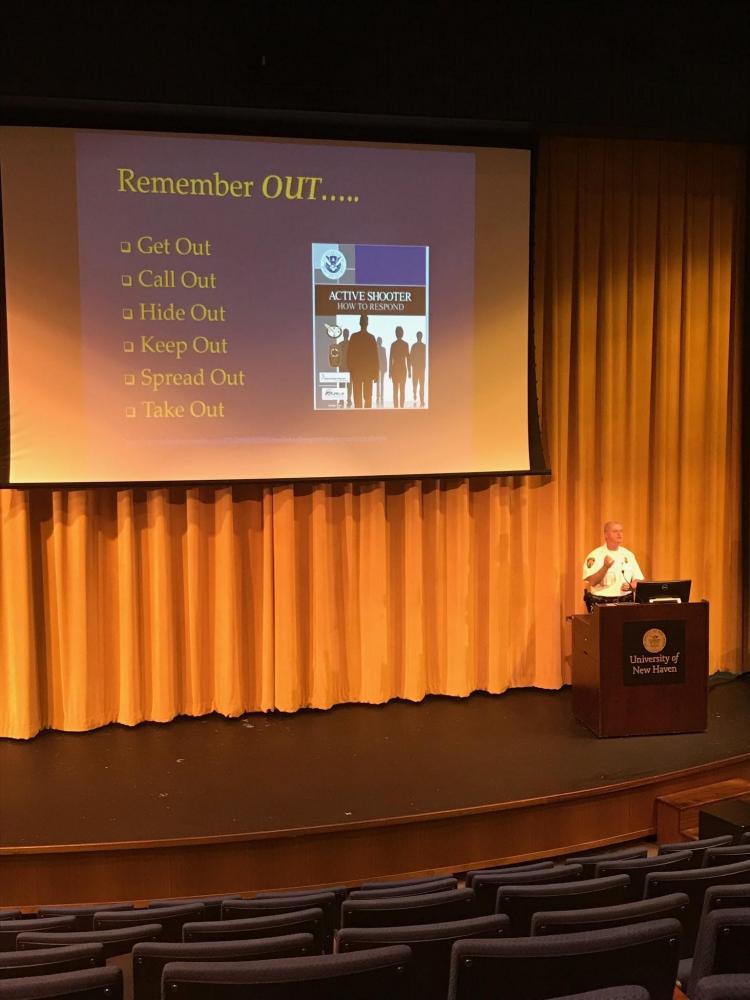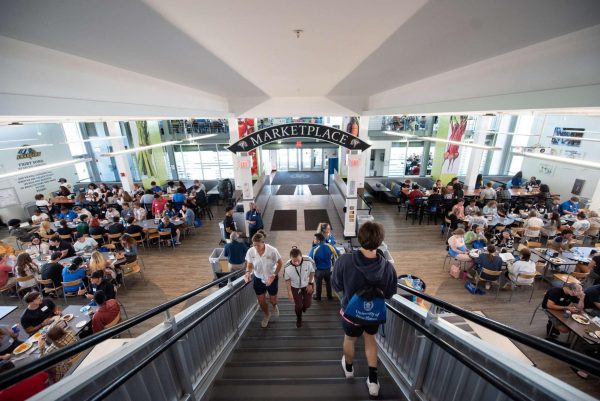Surviving an Active shooter at the University of New Haven
The University of New Haven Police Department held their annual presentation on how to survive a campus shooting on Wednesday. The presentation, put on by Assistant Chief of Police Donald Parker, aimed to inform students of the dangers of a crisis on campus.
“People’s mindsets are that it could never happen here it could never happen here,” said Parker.
Parker mentioned that students have many safety options provided to them by the university. These apps include Crisis Manager, which covers what to do in any crisis from a hurricane to a heart attack to an active shooter, and EmergenSee, which is similar to having one of the blue light monitors on your phone. The app locates your geo-location and enables video and audio to notify the police of what’s going on around you.
“Report it, don’t ignore it,” said Parker.
Parker went over some typical signs of a person in a crisis and things to look out for in regards to their behavior, explaining that they may develop violent behavior, but it’s not always a guarantee. Frequent signs include becoming more radicalized, mood swings, intentional isolation, hygiene decline, and substance abuse. If a student sees someone who may be exhibiting these behaviors, Parker stresses that they should warn the police.
According to Parker, the perception that shooters are typically the product of bullying, is often wrong. Parker expressed that it is important to know the signs and to say something, because it may save lives.
“It’s not active shooting it’s active killing,” said Parker.
When Campus Police responds to a shooter, a contact team is responsible first and foremost to stop the shooter. Then,the rescue task force is called in to help anyone in need throughout the situation.
Students felt that the event was extremely helpful and informational.
“I come here every year to get a refresh on what to do if this situation occurs. This way, the information stays fresh and simple,” said university student, Adriana Rodriguez.
Parker hopes the presentation makes more students aware of these situations and the fact that they could happen.
The UNHPD holds two of these presentations in the academic year: one for students in the fall and one for faculty in the spring.







